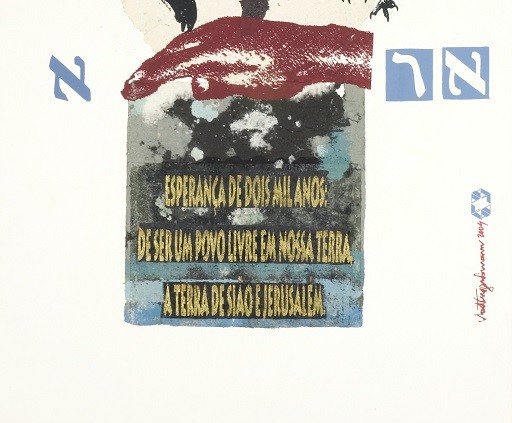Textures of Jewish identity in Elisa Lispector’s narrative
DOI:
https://doi.org/10.35699/1982-3053.2023.49055Keywords:
Elisa Lispector, Jewish tradition, In exileAbstract
The analysis of Elisa Lispector's fiction is a space to problematize the condition of women in society, highlighting her testimony as a Jewish writer. In the novel No Exílio (1948), the author offers a significant literary contribution by recording the saga of the Lispector family during their exile in Europe. While crossing the continent, facing persecution from Cossacks and Jewish enemies, the narrative describes the difficulties faced by the Jewish community in search of the fundamental right to live. The direct style of the work, devoid of literary deviations and excessive vocabulary resources, highlights the struggle of this community to value this essential right. The protagonist of the novel, the eldest daughter of a Jewish family, explores, through memory, the past of agony and affliction during the journey from her country of origin to a new land. In this sense, the present study aims to analyze how the author's Jewish identity appears in the book in exile, through the author's voice. Jewish identity, as addressed in the novel and in the broader context, is understood as a complex intersection between religious, cultural, and historical elements. Jewish precepts, based on the Torah, provide an ethical and spiritual framework, guiding the lives of Jews in prayer rituals, festive celebrations, dietary practices and ethical norms. These precepts not only guide individual conduct, but also strengthen community cohesion, transmitting Jewish identity across generations. Observance of religious practices, family rituals, and deep connection with the global Jewish community are essential means of maintaining and transmitting this rich and distinctive identity over time. Regarding methodological aspects, a textual analysis of the chosen corpus will be carried out, based on the bibliographical review. For this investigation, we will resort to some critical and theoretical reflections from authors such as Geertz (1989), Yerushalmi (1989), Amós Oz and Fania Oz-Salzberger (2015), among others.This study thus seeks to contribute to a deeper understanding of Jewish literature and Jewish identity in the work of Elisa Lispector.
Downloads
References
ALMEIDA, Sandra Regina Goulart. A nova diáspora e a literatura de autoria feminina contemporânea. In: CAVALCANTI, Ildney; LIMA, Ana Cecília; SCHNEIDER, Liane (Org.). Da mulher às mulheres: dialogando sobre literatura, gênero e identidades. Maceió: EDUFAL, 2006.
OZ, Amós, OZ-SALZBERGER, Fania. Os judeus e as palavras. Tradução de George Schlesinger. São Paulo: Companhia das Letras, 2015.
GEERTZ, C. A Interpretação das Culturas. Rio de Janeiro: Ed. Guanabara, 1989.
GOLBERG, D.J. & RAYNER, J. Os judeus e o Judaísmo. Rio de Janeiro: Xenon Ed, 1989.
LISPECTOR, Elisa. No exílio. Editora A noite: 2005.
YERUSHALMI, Y.H. Zakhor.História Judaica e Memória Judaica. Rio de Janeiro: Ed.Imago. 1992.
Downloads
Published
How to Cite
Issue
Section
License
Copyright (c) 2023 Arquivo Maaravi: Revista Digital de Estudos Judaicos da UFMG

This work is licensed under a Creative Commons Attribution 4.0 International License.
Os direitos autorais pertencem exclusivamente aos autores. Os direitos de licenciamento utilizados pelo periódico é a licença Creative Commons Attribution 4.0 (CC BY 4.0): são permitidos o compartilhamento (cópia e distribuição do material em qualquer meio ou formato) e adaptação (remix, transformação e criação de material a partir do conteúdo assim licenciado para quaisquer fins, inclusive comerciais.






